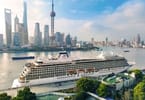TAIPEI – Two decades after letting its people and companies go to China, Taiwan is opening itself to Chinese investors and visitors — a move that could carry big economic dividends but also one fraught with political risk.
By opening itself to a flood of Chinese tourists and investment dollars, Taiwan is exposing its markets, economy and political and social systems to huge influence from its much larger neighbor and political rival.
Some forecast the injection of new activity could boost Taiwan’s laggard economy by as much 2 percentage points. But lack of progress or a backlash if change occurs too quickly could also undermine the new China-friendly government.
“There will be some initial apprehension when mainland capital comes in to buy real estate, business or other things,” said Wu Ray-kuo, managing director of risk consultancy at Fu-Jen University.
“After that, it will depend on how the mainland capital is used. If all these control relaxations don’t lead to the desired result, there could potentially be public backlash.”
Since President Ma Ying-jeou took office in May, his administration has announced a steady stream of initiatives aimed at opening Taiwan to Chinese and their investments, ending six decades of prohibition.
The first of those, a landmark tourism deal in June, could result in up to $3.2 billion in additional tourism spending each year, adding 0.8 percentage points to Taiwan’s gross domestic product, BNP said in a July research note.
Since then, Ma’s administration has discussed or announced plans to open Taiwan’s stock, real estate, infrastructure and manufacturing markets to China in the near to medium term.
In the longer term, Ma has also talked up the idea of creating a Greater China common market modeled on Europe.
BIG BENEFITS
The potential benefits to Ma’s initiatives are economic, designed to help Taiwan share in China’s rapid economic growth, which has averaged more than 10 percent in recent years.
If handled properly, allowing Chinese consumers and investors into Taiwan could add up to 2 percentage points to Taiwan’s economic growth, Roth Capital Partners forecast in April.
“We believe globally oriented investors have not yet sufficiently focused on the improved long-term opportunities that Taiwan represents,” Roth said in a note at that time.
JP Morgan economist Grace Ng said the extra boost could be as high as 1 percentage point, citing Hong Kong as an example of what could happen.
GDP growth in the former British colony shot up to the 6-7 percent range from previous rates closer to 4 percent after it opened its doors to large numbers of Chinese tourists in 2003.
“It’s a matter of how much they can unlock the potential benefits from the cross-strait links,” she said.
China has claimed self-ruled Taiwan as its territory since the end of the Chinese civil war in 1949 and pledged to bring the island under its rule, by force if necessary.
Political rivalry aside, Taiwan firms have pumped more than $100 billion into China over the last 20 years, and Taiwan now counts China as its favourite export destination. Some 1 million of Taiwan’s 23 million people now live or work in China.
Following Ma’s election, many hope capital will start to flow back to Taiwan. Credit Suisse economist Joseph Lau said that could happen, but any results will take time.
“Over the next couple years, Taiwan will still probably be one of the laggards in the region and pretty much as a whole will be trying to find ways to stimulate the economy,” he said.
DOWNSIDE RISKS
While the upside looks good, analysts caution that Ma and his government must tread carefully to avoid potential negative reaction if Taiwan is perceived as giving away too much without getting enough in return.
If it fails to deliver, the administration could see vocal public protest in the short term, and stiff competition longer term from his party’s main opponent, the China-wary Democratic Progressive (nyse: PGR – news – people ) Party, now mired in a series of scandals that led to its defeat in the March presidential election.
“I would guess that Ma is going to face pretty strong backlash because he’s changing things quite a bit and there’s generally resistance to change no matter what is,” said Syd Goldsmith, a former U.S. diplomat and current Taiwan resident.
“There’s also the feeling that he’s giving away (Taiwan’s) negotiating chips on China.”
Disappointment at the lack of instant results beyond the tourism agreement has already shown up visibly in Taiwan’s stock and currency markets.
In the first three months of the year, the Taiwan dollar gained 6.3 percent, only to drop 5.8 percent since then.
The Taiwan stock market has moved similarly, rising 19 percent from the end of January through May, only to plummet 35 percent since that time, though part of that has been due to the global financial crisis.
WHAT TO TAKE AWAY FROM THIS ARTICLE:
- “Over the next couple years, Taiwan will still probably be one of the laggards in the region and pretty much as a whole will be trying to find ways to stimulate the economy,”.
- GDP growth in the former British colony shot up to the 6-7 percent range from previous rates closer to 4 percent after it opened its doors to large numbers of Chinese tourists in 2003.
- By opening itself to a flood of Chinese tourists and investment dollars, Taiwan is exposing its markets, economy and political and social systems to huge influence from its much larger neighbor and political rival.








![China's Hyperloop Train: A Glimpse into the Future of Transportation 6 Travel Tourism News | Domestic & International Hyperloop Train China [Photo: Hyperloop Transportation Technologies]](/cdn-cgi/image/width=145,height=100,fit=crop,quality=80,format=auto,onerror=redirect,metadata=none/wp-content/uploads/2024/02/180720163348-hyperlooptt-china-capsule.jpg)













